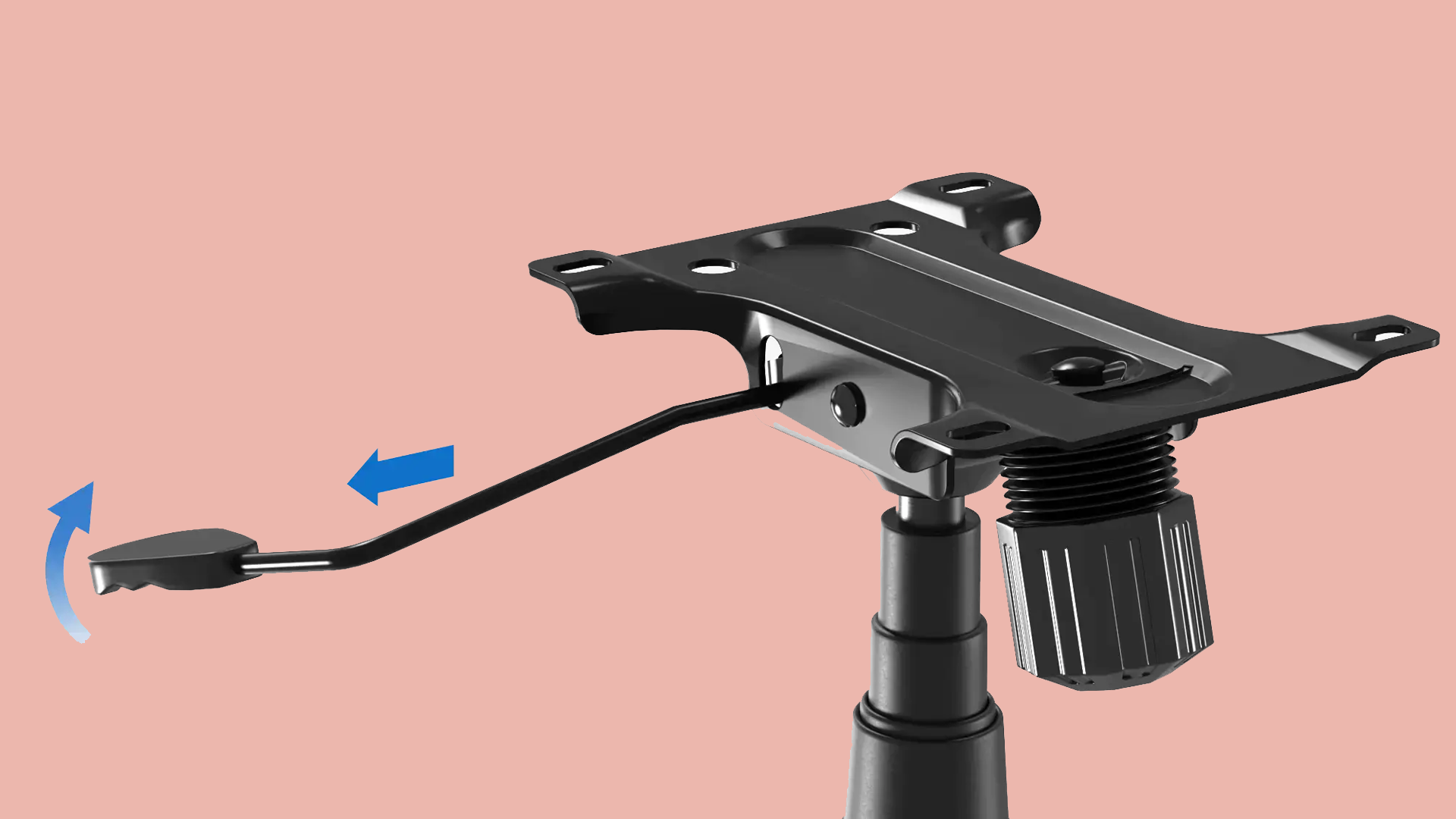There are two types of office chair mechanisms: tiltable and non-tiltable. The non-tiltable mechanism is relatively simple. Here we mainly explain the tilt mechanism.
In terms of tilting results, chair tilt mechanisms are divided into three categories: back tilt mechanisms, seat tilt mechanisms, and synchro tilt mechanisms.
But we must know, the kind of chair back that is made of flexible material and can be bent under force and recline actually has nothing to do with the chair mechanism!
The kind of chair back that is directly connected to the seat with metal parts, such as steel plate connection also has nothing to do with the tilt mechanism. Because the steel plate is bent to achieve elasticity. However, these two types of chairs belong to the back tilting chair.
The back of the back tilt mechanism can be reclined and the seat is kept level.
The seat tilt mechanism is generally integrated with the seat back, which is very common in leather chairs. The seat is tilted like the seesaw, causing the seat back to tilt together, but the angle between the seat and the back remains the same.
Synchro tilt mechanism means that both the seat and back can be tilted, and the seat back shifts synchronously.
The three tilt mechanisms are compared in use.
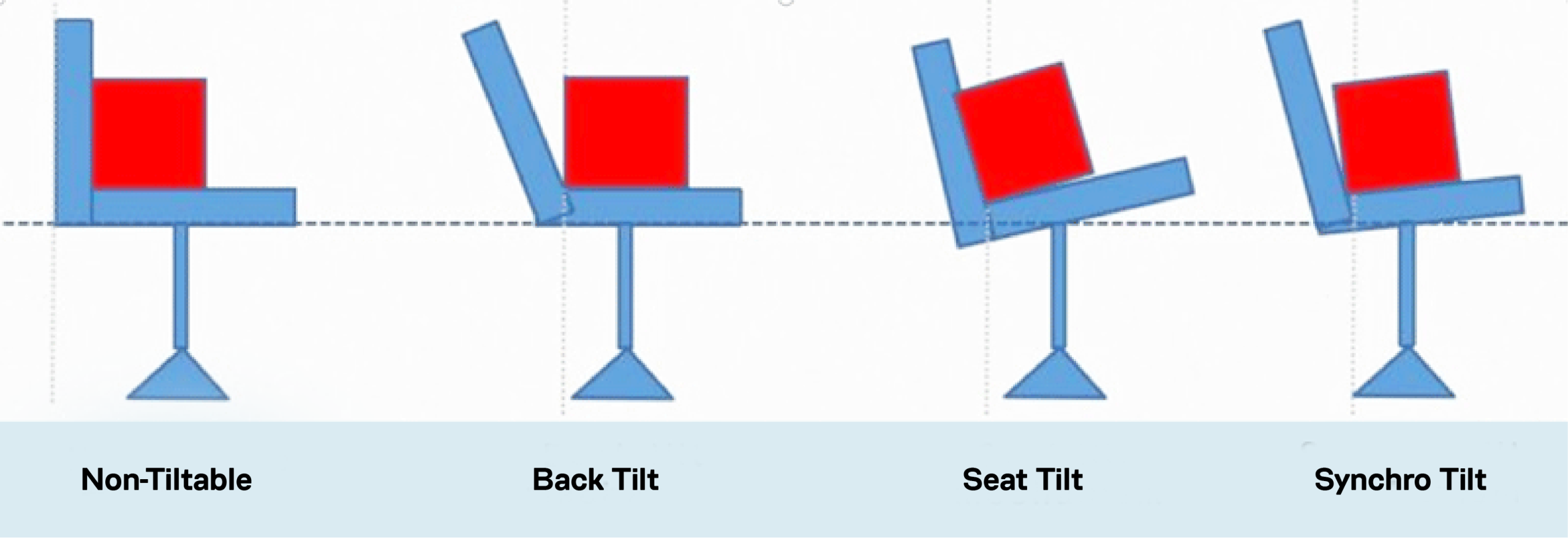
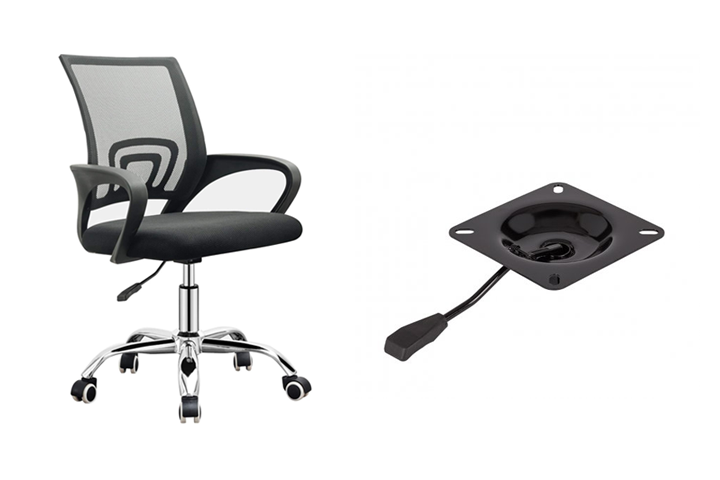
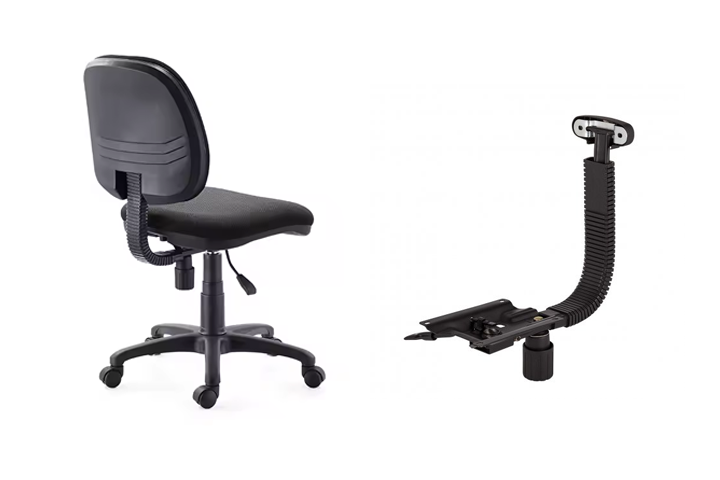
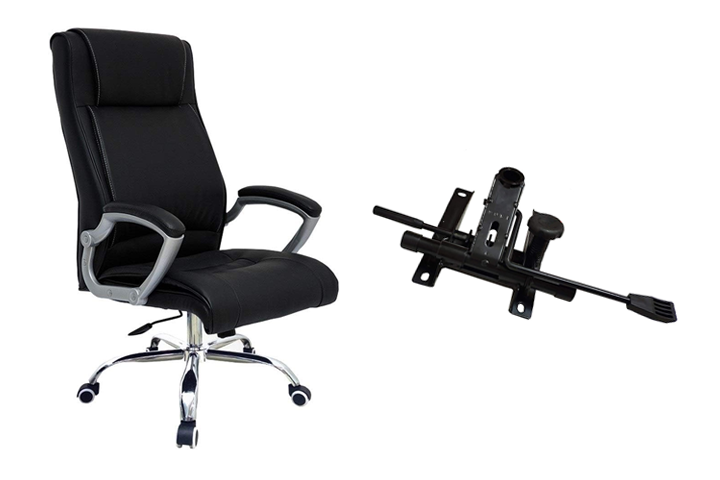
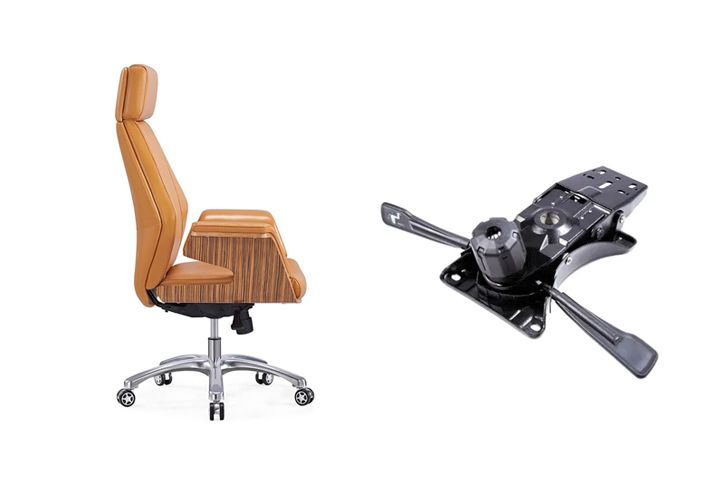
1. Back Tilt Mechanisms
Backward tilting is generally easy to wear clothes. For example, if a man wears a business shirt which is stuffed into his pants, then the shirt may be pulled out by the friction of the back of the chair. Of course, the back of some chairs can slide up and down, so this problem will not occur.
2. Seat Tilt Mechanisms
Due to the different connection points between the mechanism and the seat, the seat tilt mechanism is divided into a central seat tilt and a front seat tilt.
Therefore, in terms of the different connection points, the tilt mechanism are divided as central tilt mechanism and the front tilt mechanism.
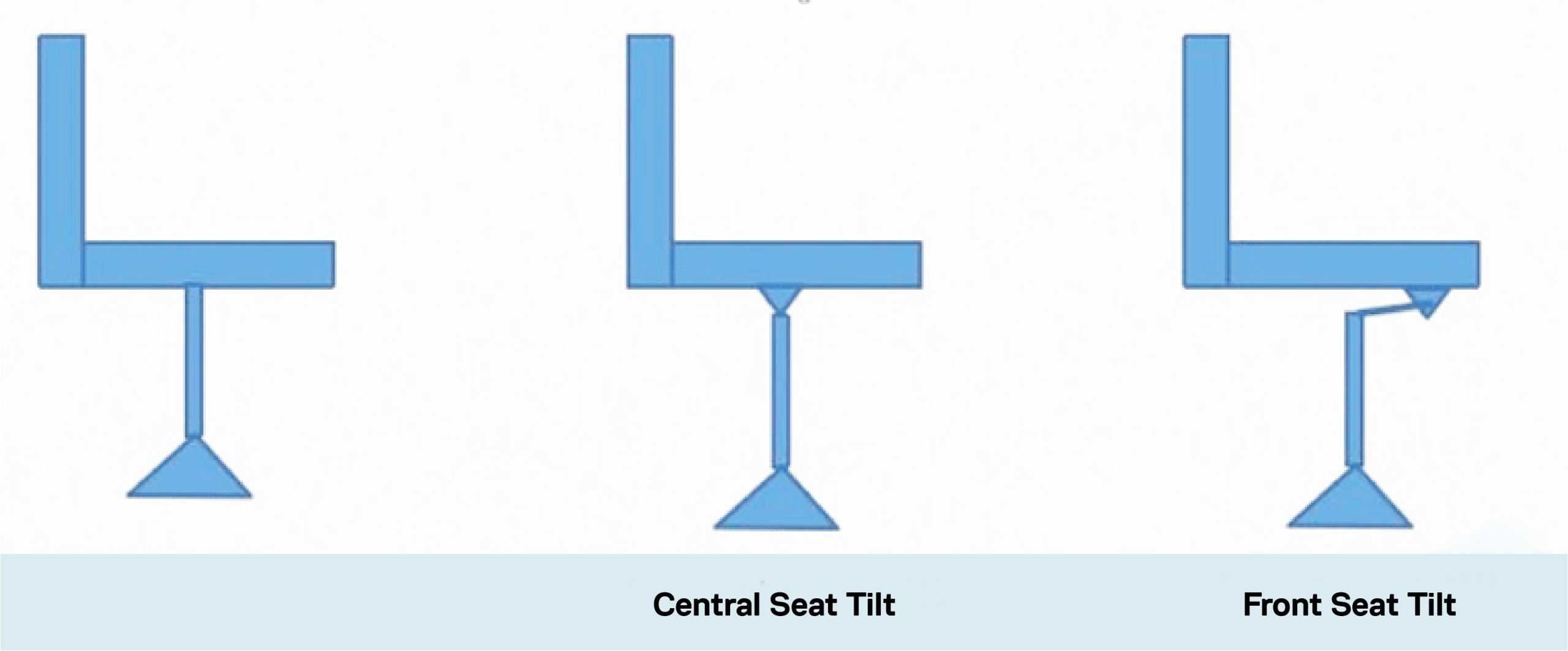
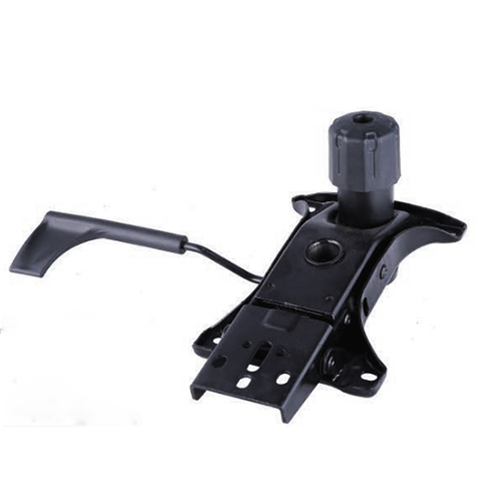
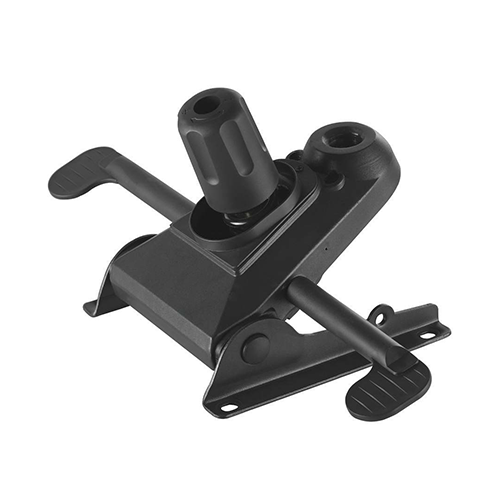
The synchro tilt mechanism is very complicated from the perspective of mechanical mechanics. Because it is a combination of back tilt and seat tilt, and seat tilt has a central position and a front position. Therefore, there are many types of synchronous tilting, such as X-type, S-type, etc.. Each manufacturer calls it differently, and currently there is no unified subdivision name.
But from the operational level, there are currently three types: wire control adjustment, mechanical adjustment, and weight adjustment.
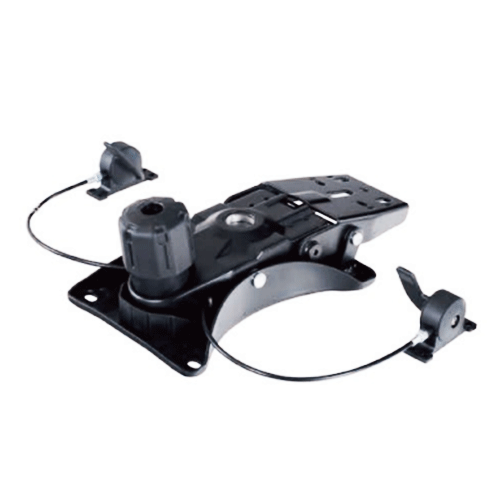
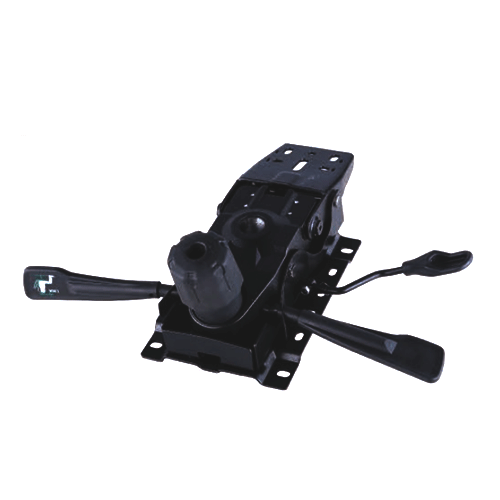
The tilt locking is one important function for the chair mechanism. There are 2 types of tilt locking: hierarchical locking and automatic resilient locking.
The hierarchical locking generally has several gears at different angles, and the seat back can be locked when tilted to any angle.
# Automatic Resilient Locking
There are also different gears for automatic resilient locking. Fix at a certain gear, to which each time the maximum tilt angle will be reached. But the chair back cannot be locked, and when the body sits up, and the chair back will return to the normal angle. That is why it is called automatic resilient locking.
This kind of locking has two obvious benefits.
- One is that when the body sits up, the back of the chair rebounds from behind automatically, which provides support for the back. Especially the people with lumbar pain can feel the care of this detail.
- The other advantage is that it does not need to unlock. As long as the body sits upright, the back of the chair is also straight, which shows that the mental state is simply agile. Otherwise, people get up after a break at noon, their own chair is still lying down!
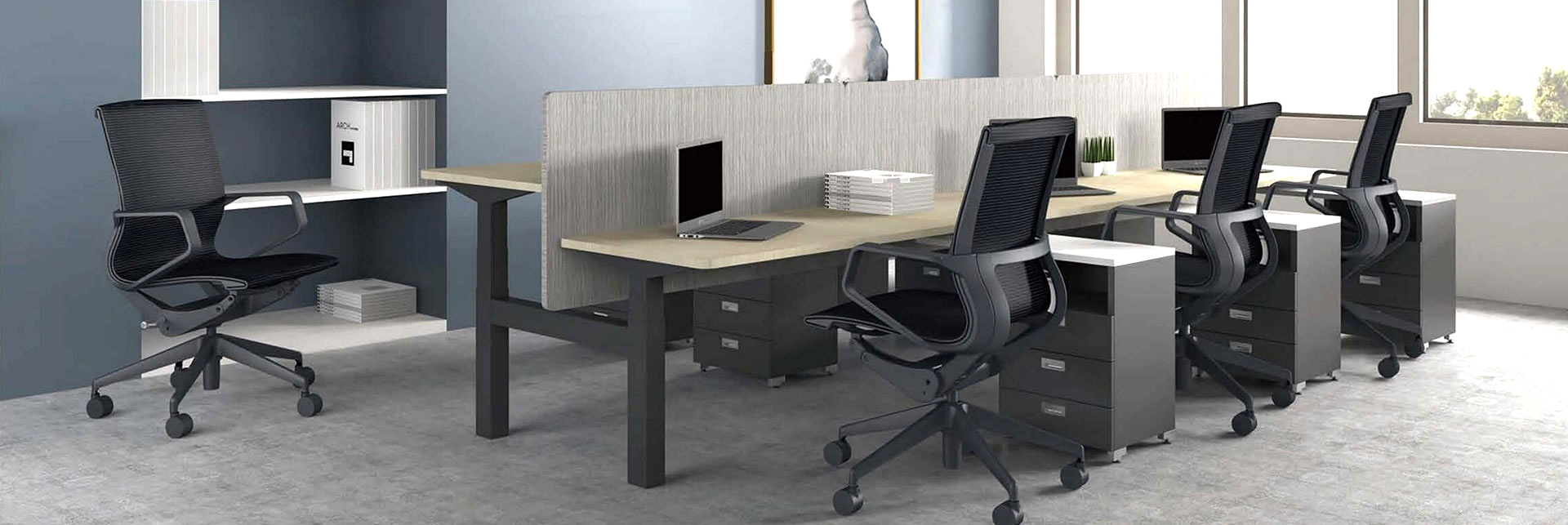
I believe that through this article, everyone can have certain understanding of the back tilt mechanism, the central tilt mechanism, the front tilt mechanism, the synchro tilt mechanism, the wire control mechanism, the self-weight tilt mechanism, etc.
- In addition to the classification by tilting result, the tilt mechanisms also have the other names such as: Knee Tilt Mechanisms, which is called for its looking or butterfly-like shape (also called as butterfly tilt mechanism).
- Or one mechanism that can realize lots of function, it is called Multifunction Tilt Mechanism. Sometimes a simple mechanism will got a name as swivel tilt mechanism.
